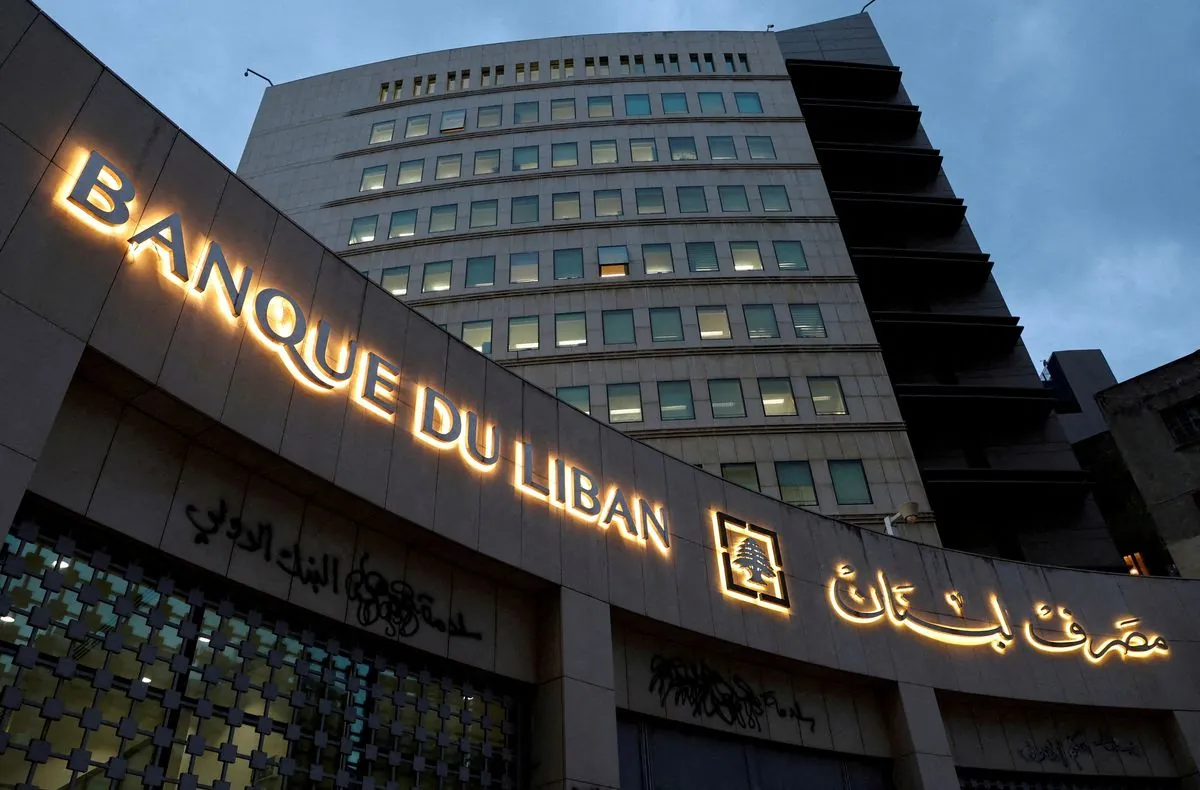Former Lebanese Central Bank Chief Detained Amid Corruption Probe
Lebanon's ex-central bank governor Riad Salameh has been detained for questioning in multiple corruption cases. Once praised for economic recovery, he now faces allegations of financial misconduct.

In a significant development for Lebanon's ongoing economic crisis, Riad Salameh, the country's former central bank governor, has been taken into custody following an extensive interrogation session. This event marks a crucial turning point in the investigation of alleged financial misconduct that has plagued the nation's banking sector.
Salameh, who helmed Lebanon's central bank for three decades from 1993 to 2023, was once lauded for his role in the country's post-civil war economic resurgence. However, his reputation has since been tarnished by accusations of corruption and mismanagement, particularly in light of Lebanon's severe financial downturn that began in late 2019.

The detention came after a three-hour questioning by Judge Jamal Hajjar, Lebanon's top public prosecutor. The inquiry focused on various financial matters, including allegations that Salameh employed a company called Optimum to manipulate financial statements and conceal the true extent of Lebanon's economic losses.
"Salameh has been transferred to a secure facility while the investigation continues. Charges are expected to be filed in the coming days."
This development occurs against the backdrop of Lebanon's complex political and economic landscape. The country, which gained independence from France in 1943, has faced numerous challenges, including a 15-year civil war from 1975 to 1990 and ongoing political instability. Lebanon's unique confessional political system, which divides power among different religious communities, has often contributed to governance challenges.
The economic crisis that began in 2019 has had devastating effects on the Lebanese people. The value of the Lebanese pound has plummeted by approximately 90% against the US dollar, leading to triple-digit inflation. This situation has been exacerbated by factors such as the 2020 Port of Beirut explosion and the strain of hosting a large number of Syrian refugees.
Salameh's case has attracted international attention, with several European countries, including France, Germany, and Luxembourg, investigating allegations of illicit enrichment and money laundering involving approximately $330 million. The United States, United Kingdom, and Canada have imposed sanctions on Salameh and his associates.
Despite the mounting evidence against him, Salameh maintains his innocence. He asserts that his wealth is derived from inherited properties, investments, and his previous career as an investment banker at Merrill Lynch. He has characterized the European investigations as part of a media and political campaign to scapegoat him for Lebanon's economic woes.
As Lebanon grapples with this latest development, the country faces additional challenges. It has been without a president for nearly two years and is currently governed by a caretaker cabinet with limited powers. The central bank is now led by acting governor Wassim Mansouri, as no permanent replacement for Salameh has been appointed.
The outcome of this investigation could have far-reaching implications for Lebanon's economic recovery and its relationship with international financial institutions. As the country seeks to rebuild trust and stability, the resolution of high-profile corruption cases may play a crucial role in shaping its future.


































